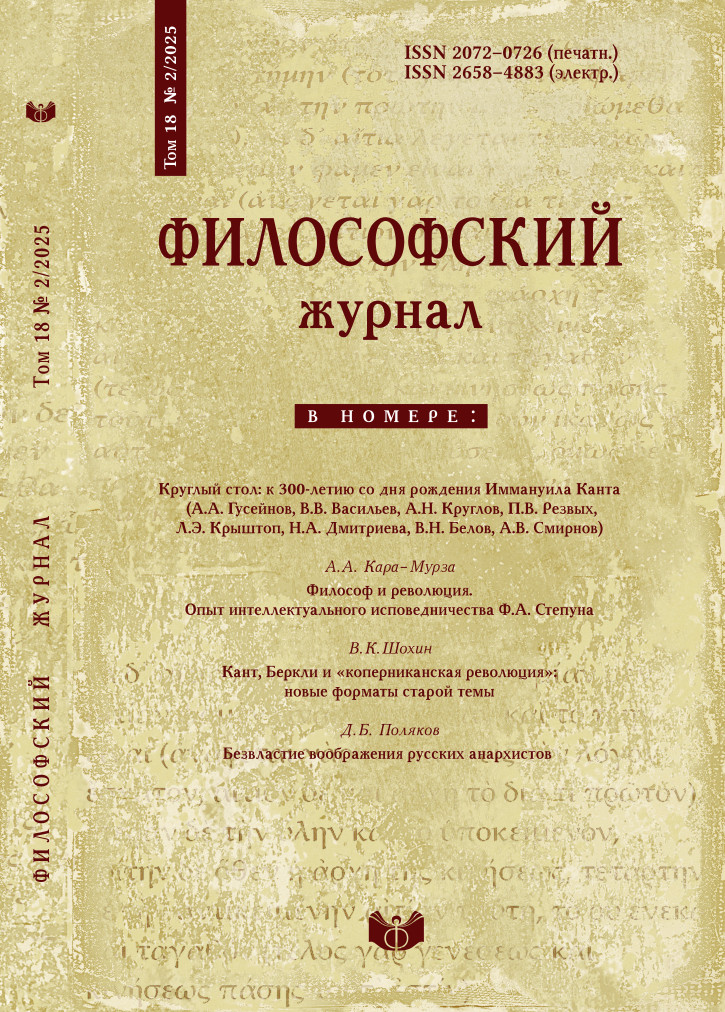Genesis of human values
DOI:
https://doi.org/10.21146/2072-0726-2025-18-2-163-177Keywords:
value, human nature, potentiality, emergence, experience, human meaningAbstract
The thesis I elucidate and defend in this paper is that human values come into being as an existential response to the peremptory desires, or basic human urges, that constitute the essential structure of human nature, or the human essence, and that human nature exists as a potentiality in the formal organization of the human body. Implicit in this thesis is that an adequate understanding of the phenomenon of value should be based on a reasonable examination not only of its instantiation in aesthetic, moral, or cultural objects or activities but also on the dynamics of its genesis. We cannot comprehend a phenomenon in the fullness of its being adequately unless we comprehend it in terms of its structure, assumptions, effects, and the conditions under which it comes into being. The paper consists of two parts. In the first part, I discuss the concept of potentiality with particular emphasis on what it means for human nature to exist as a potentiality in the formal organization of the human body. In the second part, I argue that human nature is essentially a power. Its basic structure consists of peremptory desires: intellect, affection, and volition. Their living unity comprises the essential structure of human nature. The objects at which these desires aim are human values: aesthetic, religious, cognitive, moral, cultural, and individual values. They emerge as potentialities in the human body, as schemas in human experiences, and as meaning in human life.






